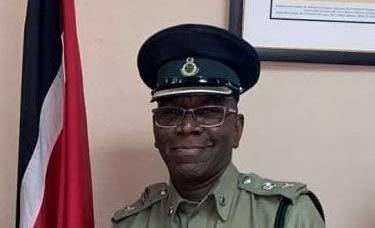Commissioner: Gangs kept apart in prisons

ACTING Prisons Commissioner Carlos Corraspe says that gangs are being kept apart as effectively as possible in prisons after Gerard Gordon, president of the Prisons Officers Association, raised concerns on January 7 over resource challenges.
Corraspe spoke to Newsday by phone on January 9 and said a rigorous process was followed for incoming prisoners.
"We do our interviews when the inmates come. They give us their concerns of the people that would pose potential issues for them and then we separate them as best as we can across all of the prisons."
He said the prison system relied on historical data and information from other law-enforcement agencies to ensure the accuracy of inmates' records before they were allocated within the system.
Newsday understands the process is not as simple as separating gang members by blocks, building or prisons, as most incoming inmates do not admit they are gang-affiliated.
In his statement on January 7, Gordon claimed the government had overseen the decline of prisons, which had a myriad of well-documented problems, now worsened by the state of emergency (SoE) put in place on December 30.
"The nation's prisons are under-resourced, over-burdened and littered with infrastructural deficiencies.
"Now in the SoE (they) expect to use the same decrepit institutions to hold and treat detainees and those arrested."
During a press briefing on January 8 at the Police Administration Building, deputy Commissioner of Police Junior Benjamin gave data from the first ten days of the SoE.
He said police had targeted 503 priority offenders and arrested 360 individuals. Up to day ten of the SoE, 143 people remained in custody.
Newsday also understands that Building 13 of the Maximum Security Prison (MSP) in Arouca was raided on December 30 and over 20 illegal phones were seized.
The building was raided again on January 2, when over 20 illegal phones were found.
Newsday asked Corraspe what was being done to limit illegal items, specifically phones, coming into the prisons. He said, "We continue to engage our security apparatus.
"Some of those items are brought in by officers who are not acting in the best interest of the prisons service. There are many instances when they are coming in through drones, as well."
He said he had engaged the Ministry of National Security and given long-term solutions to the problems, but admitted they would take time to materialise.
"In the meantime, we have some short-term solutions. We are doing our searches to discover what maybe is in the spaces (of the prison) and search officers...to reduce the influx."
Prisoners not entitled to phone calls
Newsday also asked Corraspe if he believed there should be a method, specifically through cellphones, for prisoners to communicate with their family members.
He said, "Historically and by prison rules there is no entitlement for phone calls. Of course, the prison rules are outdated, as letters and visits are the entitlements."
He said inmates with families abroad can make phone calls, as the other methods (letter and visits) would be difficult.
"Over time, as the prison numbers have increased, we have used the phone option to keep people in contact with their families through the welfare department.
"They make arrangements with the inmates to have these calls."
He recalled a trial run of an inmate phone system at the MSP, but said it had not been reimplemented owing to the lack of necessary approvals from the National Security Ministry.
"So as it stands, by prison rules there is no entitlement to a phone call.
"We always have to balance to assist the inmates with the security requirements. It's a delicate balance."
Corraspe also said there had been no change to the prison visit policy since the start of the SoE.

Comments
"Commissioner: Gangs kept apart in prisons"